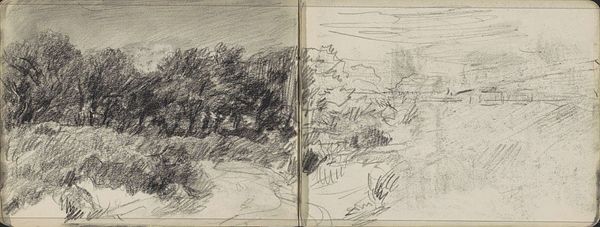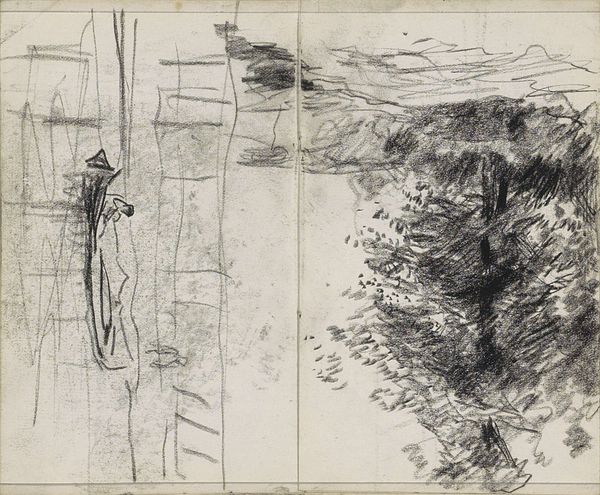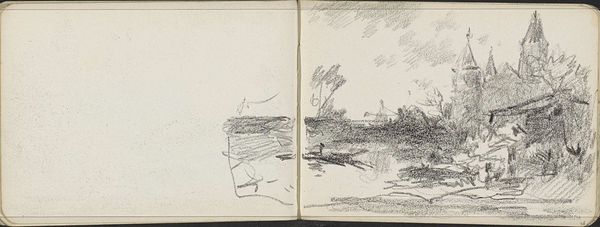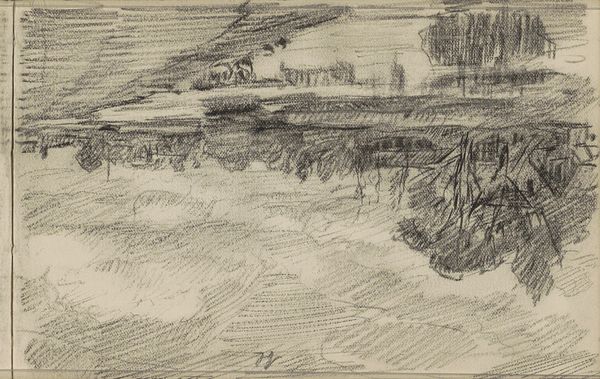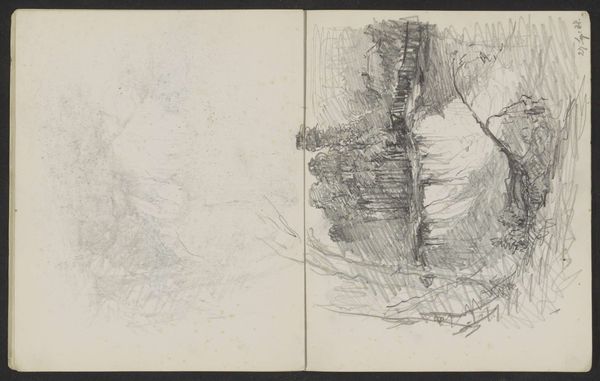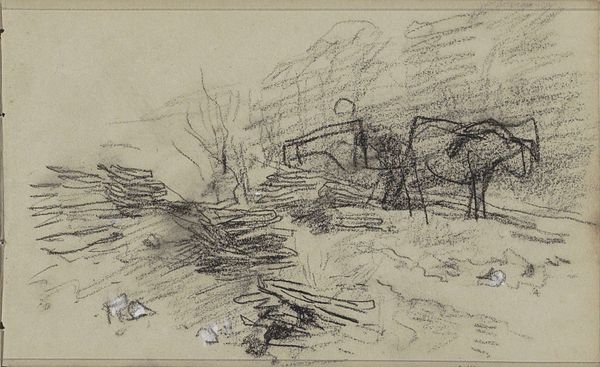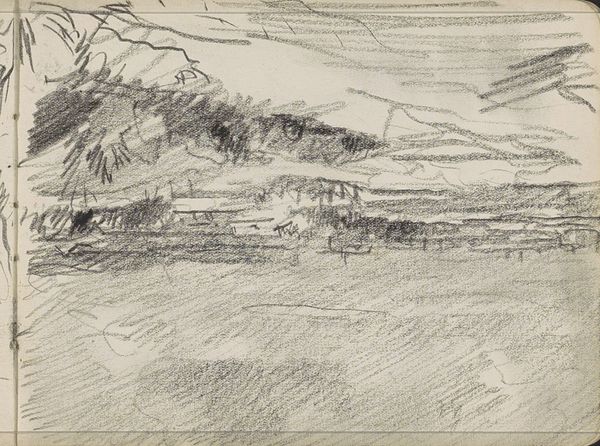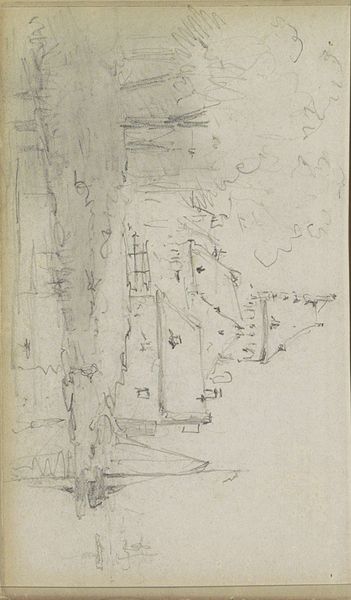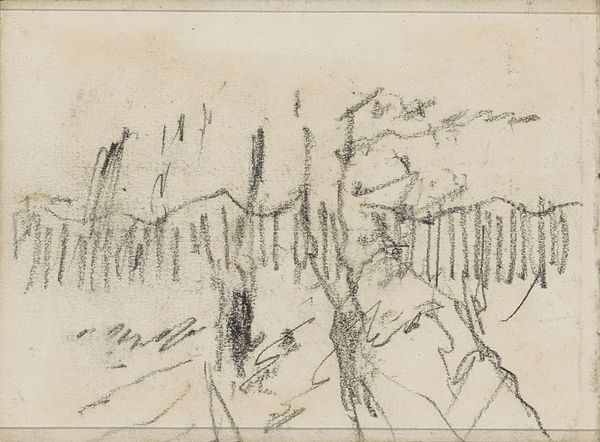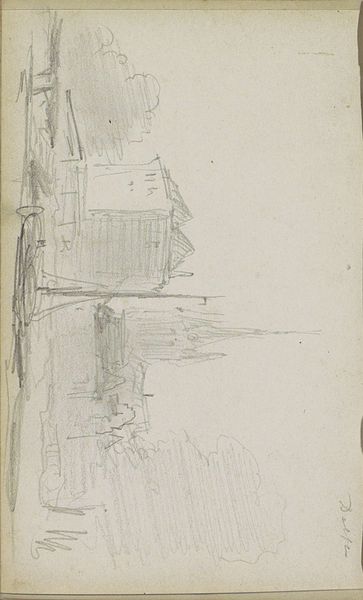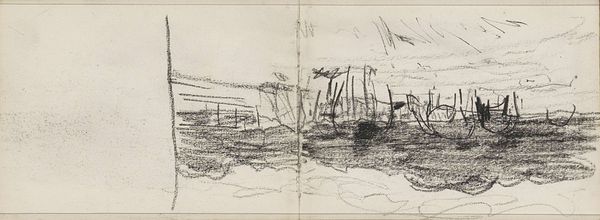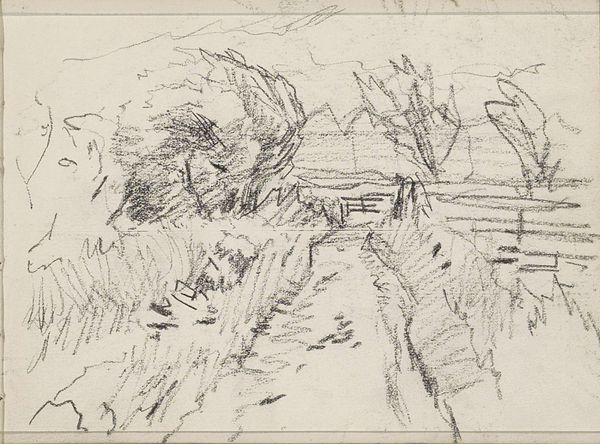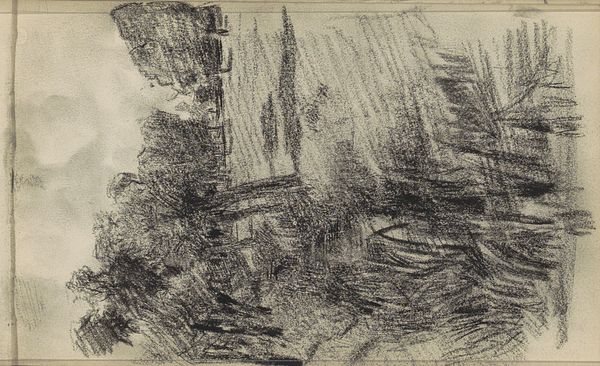
drawing, pencil
#
drawing
#
pencil sketch
#
landscape
#
forest
#
pencil
#
realism
Copyright: Rijks Museum: Open Domain
Curator: Johan Antonie de Jonge created these pencil sketches between 1884 and 1927. They’re collectively titled "Twee bosgezichten," meaning "Two Forest Views." Editor: They have such a raw, almost unsettling energy, don't they? A far cry from idealized landscape painting. It feels like you're peering into a space that is both familiar and deeply unknowable, with all these scratchy lines! Curator: The forest has held immense symbolic weight across cultures and eras. It often represents the unconscious, a place of initiation and transformation, think about Little Red Riding Hood. Do these resonate with that idea for you here? Editor: Absolutely! These quick sketches deny us a comfortable view. There’s a stark quality, almost a rejection of romantic notions of nature. The focus is on texture, movement... a feeling of disorientation even. Considering this artist lived through a time of immense industrialization, I see this piece as a commentary of the rapidly shifting natural landscapes. Curator: The use of pencil intensifies that raw, immediate feel. Pencil is a tool for study, exploration, and immediate record. Do you think the artist wanted us to question our role and our gaze when we look into forests and perhaps at the "other"? Editor: Most definitely. Think of how landscape painting has historically been used to stake claims to territory. By stripping it bare, using just pencil and paper, de Jonge seems to ask us, "What are we really seeing?" Are we recognizing ourselves as intruders? It reflects his sensitivity to colonial structures and social inequality, given that he later committed his life to advocating for social justice! Curator: These sketches could then represent that liminal space between observation and interpretation, between the known and unknown that's at play, both in nature and in society, as they transition into industrial. The lack of embellishment underscores the honesty of that search. Editor: Right, and that makes these pieces feel startlingly modern, even now. They become a call to ecological awareness, to recognize the stakes of the transformations around us and the questions these impose. Curator: I see that clearly, it's that awareness translated into a visual warning. What a striking echo from the past to today's challenges. Editor: Indeed. I now read it as less unsettling and more urgent than I initially thought.
Comments
No comments
Be the first to comment and join the conversation on the ultimate creative platform.
